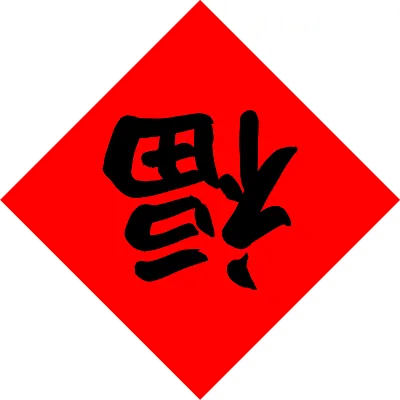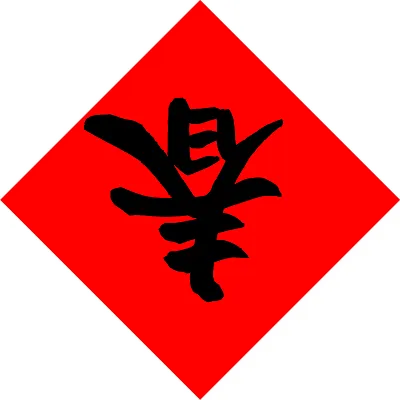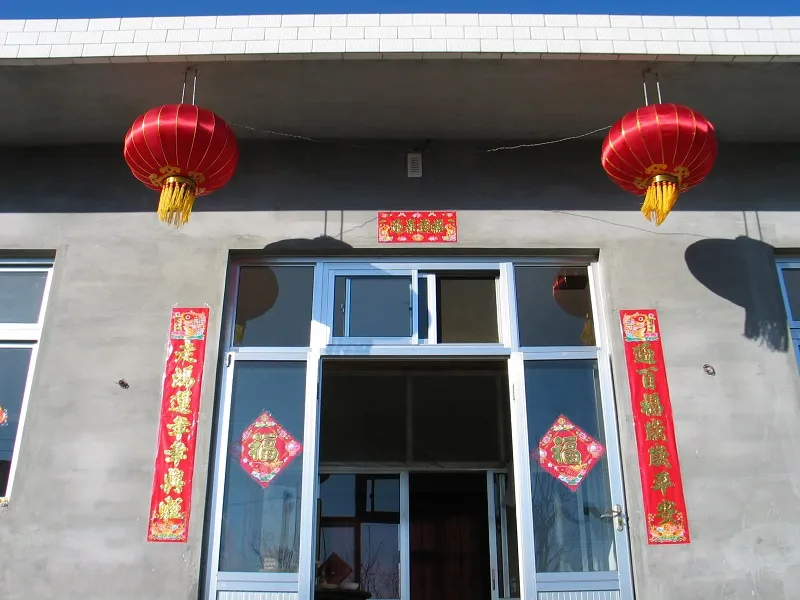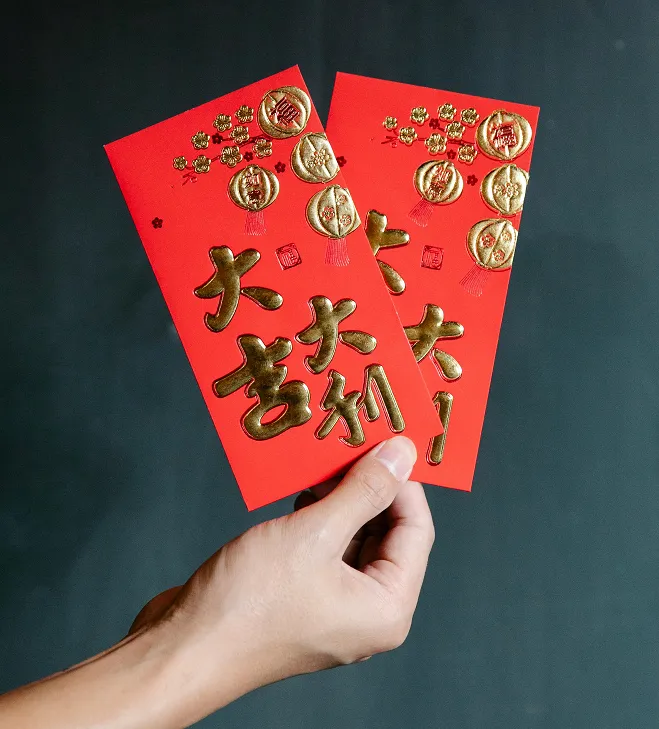By Maria Wilkinson
Lunar New Year (known as Chinese New Year or Spring Festival in Taiwan) is right around the corner, starting February 10th this year. The New Year is ten days of celebration, though Taiwan’s recognition of the national holiday changes in length from year to year.
In mythology, Lunar New Year began from the story of Nian (年; year), a mythical beast that lived under the sea (or others may say in the mountains). During the Spring Festival, Nian would trek through villages in the middle of the night eating people, with a particular appetite for children.
One year, the villagers thought to hide from the beast, all except for one man. The man said he would seek revenge, so he hung red chunlians (春聯) and set off firecrackers. Apparently, the man had found that Nian was frightened of the color red and of the noise of the firecrackers. The next day, the villagers discovered that their village had not been destroyed.
Afterward, people in villages began to hang red chunlians (春聯) and set off firecrackers to ward off Nian. Nian is believed to have been slain by an ancient Taoist monk, but the tradition of keeping Nian away has continued on.
The customs around Lunar New Year are numerous and differ from country to country. The following are just a few traditions in Taiwan that you can participate in this year.
Firstly, clean your house or room (or dorm) from top to bottom. Windows, floors, bathrooms- you name it, you clean it. It’s best to clean out all dust and grime out of your house to ensure no unlucky drifting dirt can impede your chances for a lucky year ahead. Usually, the house is cleaned before the first day of New Year. Not only should you clean, but you should make sure to remove all trash from your house before the first day. Additionally, any trash that you accumulate during the New Year should be left to the side, as cleaning during the New Year is seen as an inauspicious act.
After you have completed the cleaning of your lovely abode, to ward off Nian and to bring good luck, you can hang chunlians (春聯) around your house. Chunlians are Chinese decorations that come in a number of different forms. Doufang (斗方) is a style of decoration that is square and points to four cardinal points. Often around Lunar New Year common Mandarin characters seen on doufang’s are fu (福; Good fortune) and chun (春; Spring). Both characters tend to be placed upside down since “down” or “inverted” (倒) shares the same sound as “arrival” (到). Meaning, it will come to you. (Side note: it is best not to put “chun” on your door, as many people are coming and going and your fortune will spill out.)


▲Doufang (斗方) is a style of decoration that is square and points to four cardinal points.
Another form of decoration is the red, long rectangular chunlian or duilian (對聯) that goes on the sides of your doors. Each rectangular chun lian usually has seven characters. Together, the two dualians pair as successive lines that rhyme and have the same meter, known as a couplet. Usually, the duilian expresses good wishes for prosperity.

▲the red, long rectangular chunlian or duilian (對聯) that goes on the sides of your doors.
One aspect of Lunar New Year that many children (and let’s be honest, we students also enjoy), is the giving and receiving of red envelopes (紅包; hong bao). These red envelopes tend to hold cash inside but the amount depends on the relationship between the giver and receiver and also their economic status. The giving of money signifies “lucky money” that gives good wishes to the receiver for a prosperous and wealthy year. Typically, if you are the giver, you should avoid giving money that has odd numbers. 300, 500, 700, etc. are not auspicious numbers. It is best if you can make the number even (examples are: 600, 1,200, 3,600). When receiving money, you may say gōng xǐ fā cái (恭喜發財). Translated literally, it means; hope you get rich. Though the meaning is more to say “wishing you prosperity in the coming year”.

▲The giving of money signifies “lucky money” that gives good wishes to the receiver for a prosperous and wealthy year.
These three traditions are only a few of the basics, but take these as your starter kit for participating in the New Year traditions. From the Office of International Cooperation, we wish you a happy Lunar New Year! May your belly be filled with delicious food and your pockets full of money.
Gong Xi Fa Cai!
More on OIC connect no.93:
The Old and the New Religious Ways: Interview With Professor Gao Chen-Hung
Jasmine Wu: A Student's Voice at COP28
NCCU at the Jessup Moot Court Taiwan Regional Competition 2024
New Student Guide: Addressing concerns adjusting to life in Taiwan
“You’re Not From Here, But Not A Tourist”: Living As A Foreign Exchange Student In Taiwan